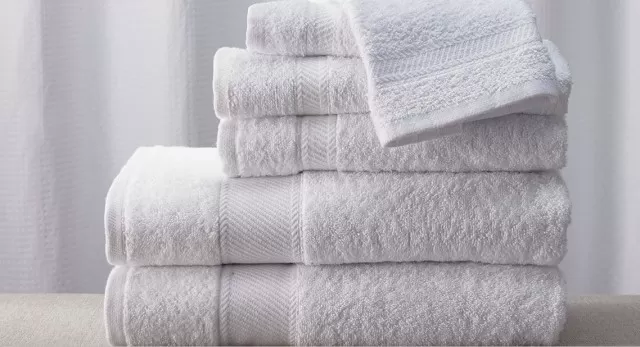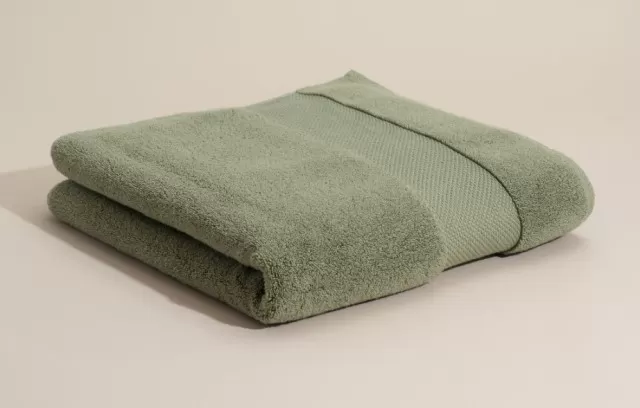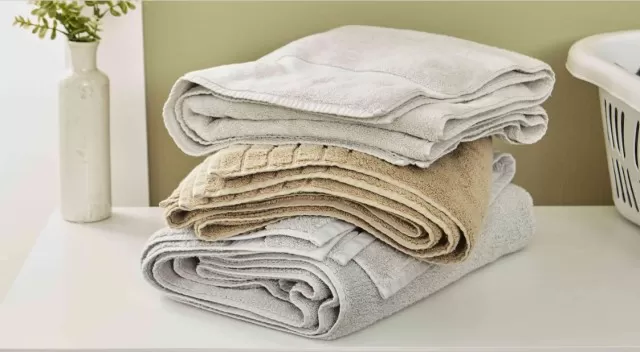The general rule of wash towels after three uses or once a week is a good guideline to maintain cleanliness and hygiene.
However, individual preferences and circumstances may vary. Some factors to consider include the frequency of use, personal hygiene habits, and the environment in which the towels are used.
If you use your bath towel daily, it is advisable to wash it every three to four days. Hand towels should be washed every two days, and washcloths can be washed every one to two days. These recommendations help ensure that you are using clean towels and minimizing the buildup of bacteria and odor.
Can You Wash Towels in Hot Water?

When it comes to washing towels, it is generally recommended to use a cold water cycle instead of hot water.
Here’s why:
Quality detergents:
Using a quality detergent is effective in cleaning towels and removing germs even with cold water.
Modern detergents are designed to provide excellent cleaning results in various water temperatures.
Fabric preservation:
Hot water can cause shrinkage, fading, and damage to the fibers of your towels, especially if they are made of delicate materials.
Washing towels in cold water helps preserve their quality and prolong their lifespan.
Absorbency retention:
Bleach and fabric softeners can affect the absorbency of towels.
Bleach can break down the fabric fibers, leading to decreased absorption capacity. Fabric softeners can leave a residue on the towels, making them less absorbent.
It is best to avoid using these products when washing towels.
By washing towels on a cold cycle and avoiding bleach and fabric softeners, you can maintain the cleanliness, absorbency, and overall quality of your towels.
Additionally, ensuring that your towels are dried completely between uses will help prevent the growth of bacteria and keep them fresh.
Properly Dry Towels

Properly drying towels is crucial to maintain their cleanliness, and absorbency, and prevent mildew growth.
Here are some tips to ensure your towels dry effectively:
Use a towel rack or bar:
Instead of hanging your towels on hooks, which can lead to slow drying and potential odors, use a towel rack or bar.
This allows air to circulate the towel, facilitating faster drying.
Avoid piling wet towels:
After using a towel, avoid piling it up with other wet towels in the bathroom or leaving it in a hamper.
Moisture trapped in piled towels can lead to mildew growth and unpleasant odors.
Transfer towels promptly:
When laundering towels, do not let them sit in the washing machine for an extended period.
Transfer them to the dryer as soon as possible after the wash cycle completes. Leaving wet towels in the machine can result in a damp and musty smell.
Shake out the towels:
Before placing towels in the dryer, give them a good shake.
This action helps aerate the cotton loops, allowing for better water absorption and improved drying performance both in the dryer and after.
By following these practices, you can ensure that your towels dry effectively, stay fresh, and maintain their maximum fluffiness.
Types of Towel Material Washes Best

When it comes to towel material, cotton is generally considered the best choice for optimal washing and maintenance.
Specifically, towels with a high cotton percentage, such as those made from 100% Turkish or Aegean cotton, tend to wash well and maintain their absorbency over multiple wash cycles.
When purchasing towels, look for the GSM (grams per square meter) or the percentage of cotton indicated on the labels.
Luxury towels often have a GSM level of 600-900, which indicates a soft and absorbent quality. Higher GSM values are associated with a fluffier feel and greater water absorption.
It’s important to note that the quality and manufacturing of the towel also play a role in its durability.
Well-made towels from reputable brands can withstand about 1,000 washes, according to Raman Kia, founder, and CEO of Havly. Towels labeled as “hotel-quality” are designed to meet rigorous washing standards in industrial machines.
In summary, choosing towels with a high cotton percentage and a suitable GSM level, combined with proper care and maintenance, can help ensure that your towels remain soft, absorbent, and durable even after numerous washes.
By following these tips and adjusting the washing frequency based on your specific needs, you can keep your towels clean, fresh, and in good condition for longer.
*The information is for reference only.